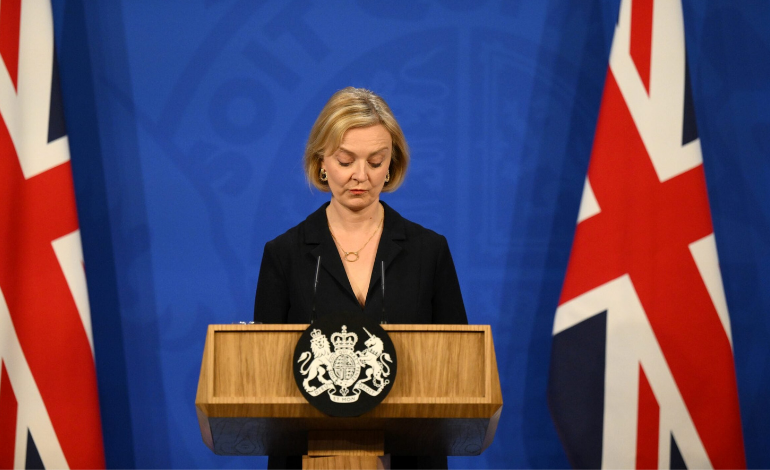
Six weeks after being appointed, British Prime Minister Liz Truss announced on Thursday that she was resigning. Her economic policy, which last month shocked the financial markets and split her Conservative Party, was the cause of her fall.
Speaking outside her office at Number 10 Downing Street, Truss acknowledged that after losing the confidence of her party, she could not keep the commitments she made when campaigning for Conservative leader.
The replacement for Truss, the British prime minister with the shortest tenure in history, will be chosen after the conclusion of a leadership election in the coming week. Prior to losing his life in 1827, George Canning held the record with 119 days in service.
"I recognise though, given the situation, I cannot deliver the mandate on which I was elected by the Conservative Party. I have therefore spoken to His Majesty the King to notify him that I am resigning as leader of the Conservative Party," she said.
Officials from the Conservative Party had assembled earlier at Downing Street as her own lawmakers grew louder in their calls for her resignation.
Truss was appointed on September 6, and after their plans for large unfunded tax cuts wrecked the pound and British bonds, she was forced to fire her finance minister and closest political friend, Kwasi Kwarteng, and abandon nearly the entirety of her economic programme. Her and her Conservative Party's popularity ratings collapsed.
She lost the second of the four most senior ministers in the government on Wednesday, was mocked when she attempted to defend her record in front of parliament, and witnessed her colleagues openly argue over policy, all of which added to the chaos in Westminster.
With the economy heading into recession and inflation at a 40-year high, the new finance minister, Jeremy Hunt, is currently searching for tens of billions of pounds in spending cuts to try to reassure investors and recover Britain's fiscal reputation.